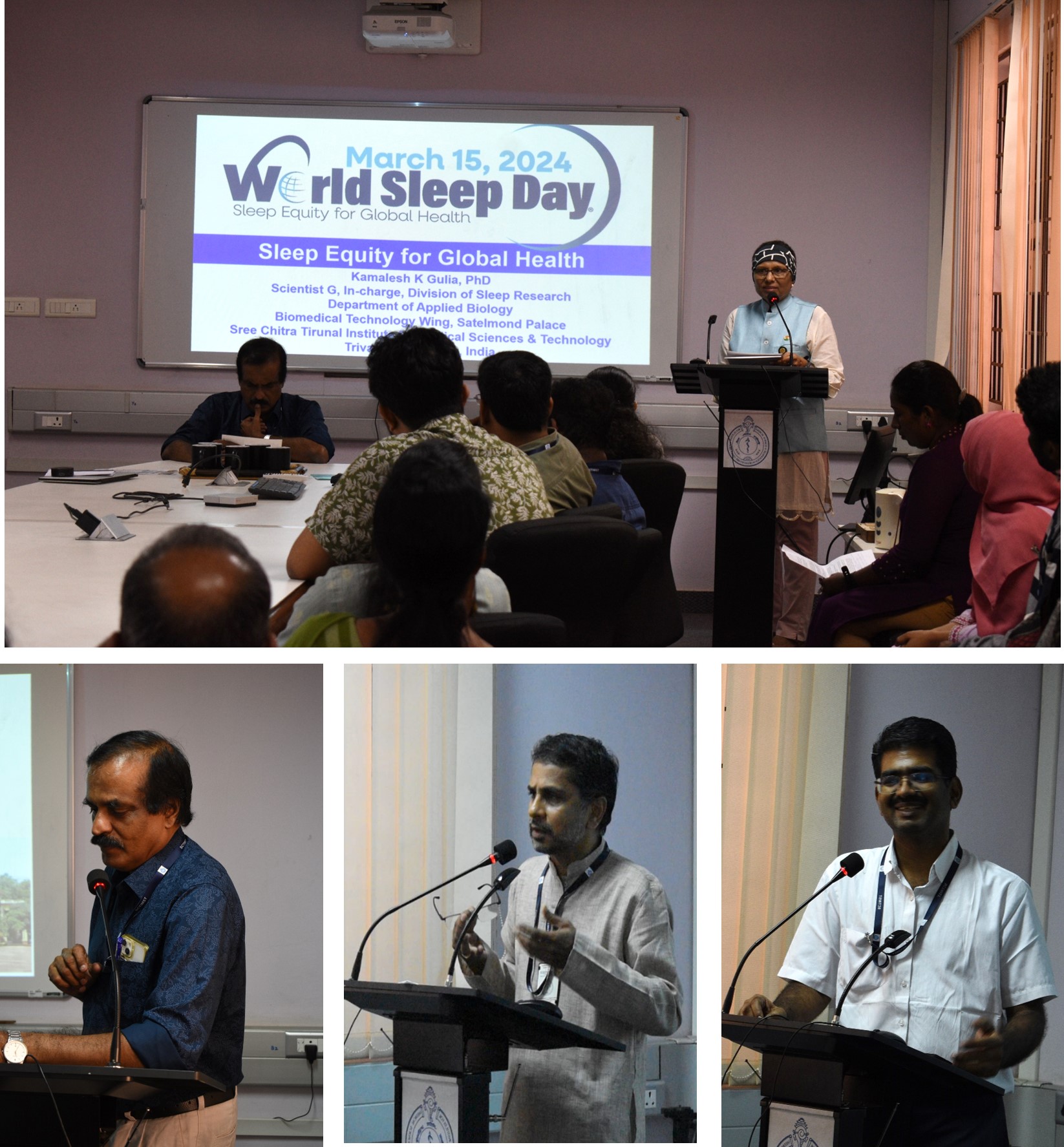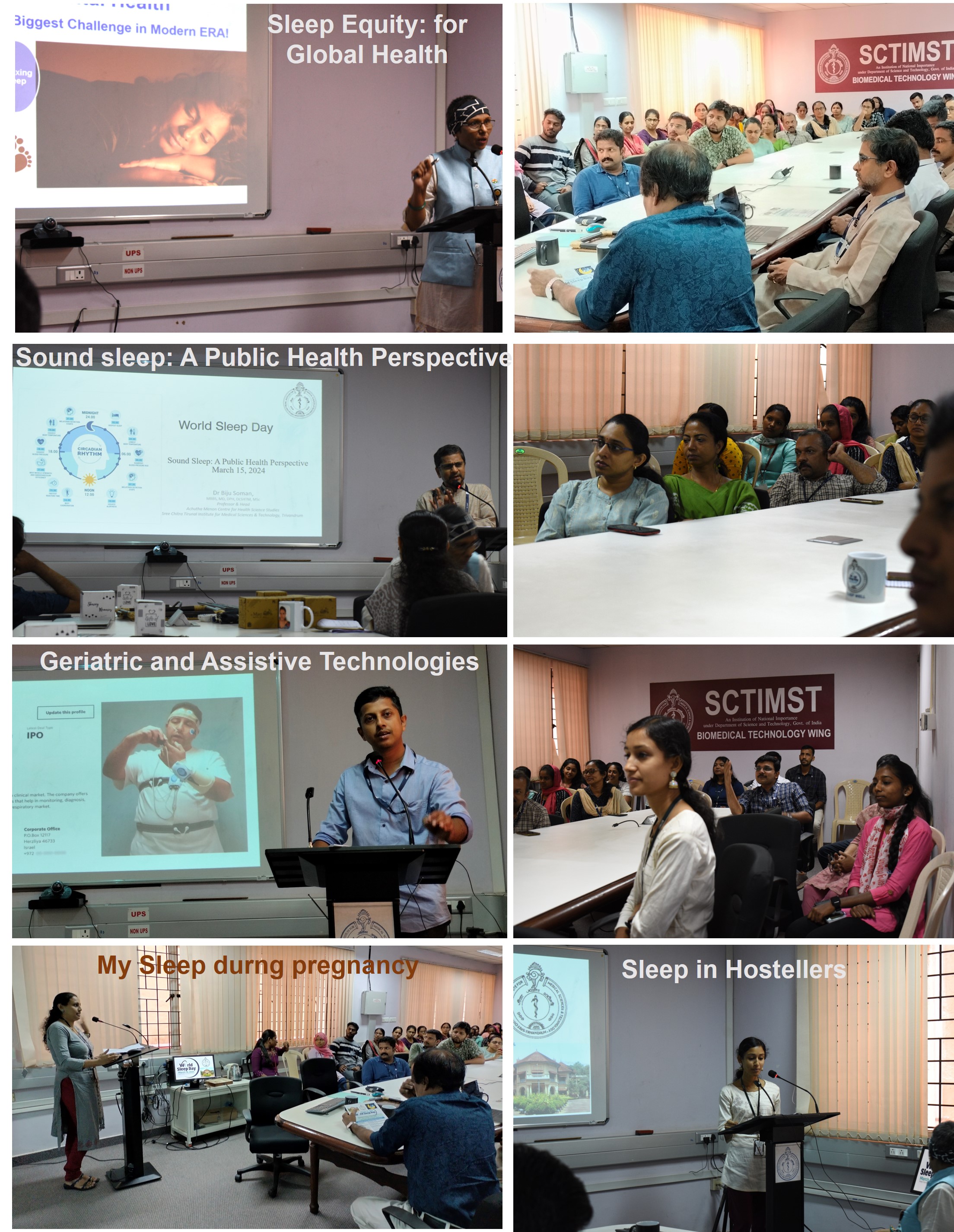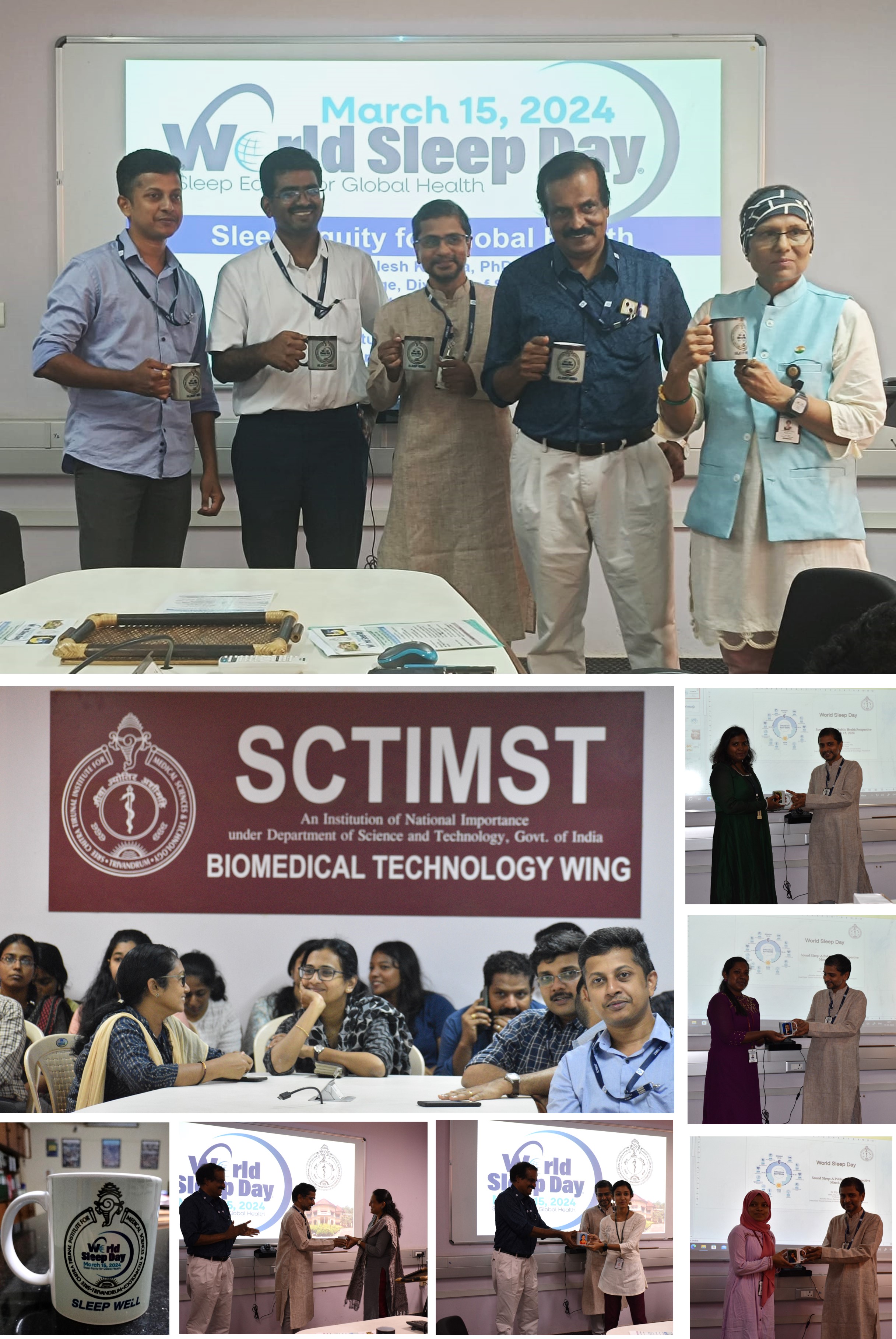Delegate: Dr Kamalesh K Gulia
Affiliation: Sree Chitra Tirunal Instiute for Medical Sciences and Technology, Trivandrum, Kerala, India
Short Bio: Dr Kamalesh K Gulia is a Senior Scientist working in India who has devoted her life to understand the mysteries of sleep especially the effects of sleep restriction during pregnancy on the neuro-cognitive development of offspring. She provided evidences on the effectiveness of Yoga Nidra as a non-pharmacological intervention to improve sleep and well-being in the postmenopausal women. She strongly feels that prevention is better than cure. Thus, she emphasizes on lifestyle management to improve sleep in the current era through various platforms for various age groups. Sleep is foundation of life as it has the oldest and inseparable link with nature. In the current era, sleep is the most important factor that needs attention to deal with overall physical and mental health, and to protect environment. Awareness is key to safeguard unborn fetus, newborn, children, adults, pregnant mothers, menopausal women, aged population from the challenging menace of poor sleep health due to several multidimensional problems in so called advanced societies.
Activity: World Sleep Day was celebrated on 15 March 2024 in the M S Valiathan Medical Devices and Engineering Block seminar hall in the BMT Wing, SCTIMST, Trivandrum to appraise the importance of sleep through this awareness program in the campus that is celebrated globally now. The message by Dr Sanjay Behari, the Director of Institute was “Sleep facilitates a good judgement and flexible reasoning. The creative function of dreams cannot be underestimated. Sleep helps in consolidating memory and integrates relational and creative memories. Sleep is regulated by the homoeostatic circadian rhythm, the sleep/wake cycle. The 24-hour internal clock in our brain creates cycles of alertness and sleepiness by responding to light changes in our environment. Connections between the light sensitive paraventricular nucleus and suprachiasmatic nucleus in the hypothalamus are involved in the circadian regulation. Adrenocorticotrophic hormone diurnal variations are well recognized as being influential in determining the circadian pattern of an individual. The genetic influences and habit patterns further influence sleep patterns in an individual. Thus, there are many ramifications in the science of “sleep” that make this a very exciting subject for research. I congratulate Dr Kamalesh Gulia and her team for their persistent quest to unravel the mysteries of this unique characteristic of all living beings that nearly occupies one third to half of their diurnal routine, and has immense contribution in determining health and disease”.
Dr Harikrishna Varma, Head of the Biomedical Technology Wing delivered the Inaugural Address and highlighted the importance of sleep equity for health. He emphasized the need for technological innovations in management of obstructive apnea and other sleep disorders. He mentioned that World Sleep Day is meticulously organized by Dr Gulia every year to bring awareness about sleep.
Dr Gulia presented a thought provoking documentary touching upon various aspects of sleep equity and global health. She discussed multidimensional aspects of sleep equity beginning with age as sleep requirements are different for various age groups (neonatal, children, pregnancy, menopause, aging), followed by conversation on opportunity to sleep based on socioeconomic factors, having a home, social factors, family, job, social security (for hospitalization expenditure), Global warming, Prolonged wars/Conflicts and Epidemics etc. She emphasized on the need for quality sleep for good mental health which is key health issue in today’s world that need attention. Dr Sabreeswaran A (Histopathology Div) delivered the Sleep Day message and chaired the later sessions. It is an opportunity for everyone to understand more about sleep as it is a basic physiological need, and mentioned that one can enjoy quality sleep by having a disciplined lifestyle.
In the special session named My Sleep, Ms Sreedevi V (Technical Assistant, Instrumentation-B from Division of Extracorporeal Devices), a recent mother, shared experiences about her sleep during pregnancy and post-delivery, and how she managed to avail good sleep with the concerted efforts of her husband and family members. Ms Kripamol R (PhD scholar, Division of Tissue Culture) shared her experiences about sleep problems in hostel life and gave tips to effectively dealt with it to enhance productivity at research work.
This was followed by Sleep Day Special Lecture, delivered by Dr Biju Soman, Professor and Head of the Achutha Menon Centre for Health Sciences Studies, on topic Sound Sleep: A Public health perspective! Dr Soman described the equity and elucidated through elegant presentation citing recent studies, how quality sleep can help in dealing with the non-communicable diseases which are so rampant in the current lifestyle. The 2nd talk was delivered by Er Subhash NN, Div of Artificial Internal Organs on Geriatric & Assistive Technologies to improve sleep, providing updates on the available devices by the start-ups in market.
A special souvenir made for the occasion, Magic coffee mug with world sleep day logo reminding of reduction of coffee/tea intake after evening, was presented to all the speakers. The World Sleep Day celebration was organized by Division of Sleep Research, Department of Applied Biology, BMT Wing. The program was compered by Ms Shani, the Project Staff in the Division of Sleep Research. Two mini posters for sleep awareness prepared by Ms Arshajyothismayi V, PhD student in Div of Sleep Research were displayed during the event.
Location: Trivandrum, Kerala, India
Date of Activity: 15 March 2024
Submitted by: Dr Kamalesh K Gulia




